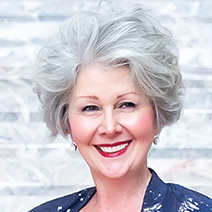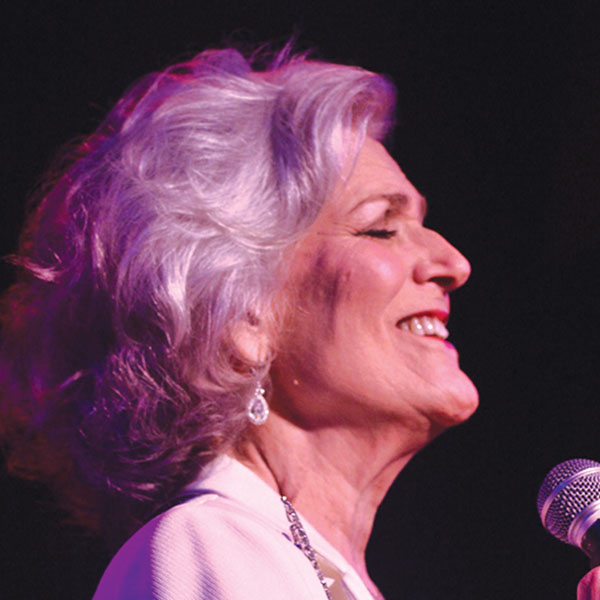Amy Beth Williams
Great Ladies, Great Songs
Don’t Tell Mama, NYC, October 26, 2018
Reviewed by Randolph B. Eigenbrode for Cabaret Scenes

Photo: Takako Harkness
For those of you unfamiliar with her, know this: when Amy Beth Williams steps into a cabaret room, she means business.
Here she’s straightforward, glorifying great songs mainly from the 1940s through the ’60s. This is a complete departure from the conceptual genius of her last offering, Carried Away. And, while this showing played was more celebration than cerebral, she still managed to pull off a wallop of a performance-punch.
Williams (along with first-class director, Tanya Moberly) smartly puts the focus on both music and stories. Deliberately light on patter, she quips, “This is not a history lesson.” And that ultimately allows her the space to serve up a quality we haven’t seen from her in some time: unabashed fun.
Particularly satisfying were a bouncy “Zing! Went the Strings of My Heart” (James F. Hanley), full of authentic school-girl charm; a torchy “By Myself” (Arthur Schwartz/Howard Dietz); and a poker-faced “Nice Girls Don’t Stay for Breakfast” (Jerome J. Leshay/Bobby Troup). The latter, with its throaty vocal attack, was expertly delivered, opting for honesty over humor. It’s pieces like these that establish just how in-control she is.
In fact, the brilliance of Williams seems to lie in her mastery of dissonance. “Thank You for Calling” (Cindy Walker) could have dissolved into maudlin melodrama. Yet, her innocent delivery, combined with a ukulele accompaniment (including a whistle solo, no less), plays in contradiction to the text for haunting effect, as do her ping-pongs between vixen come-on and sage-like lecture in “Most Gentleman Don’t Like Love” (Cole Porter).
online pharmacy https://imed.isid.org/wp-content/languages/themes/po/amoxil.html no prescription drugstore
It’s the ability to playfully live on both sides of the fence that separate Williams from her peers.
The show runs a bit long, jam-packed with 28 songs on the set list. Still, Williams makes it worth it. “The Greatest Performance of My Life” (Oscar Anderle/Robert I. Allen) is the most theatrical of the lot and certainly the most full-voiced, ringing with forward freedom.
online pharmacy https://imed.isid.org/wp-content/languages/themes/po/clomiphene.html no prescription drugstore
This time she acknowledges the song’s inherent mawkishness yet skillfully avoids camp. The misty eyes come and the voice quivers. But, magically, she resets the journey to one of empowerment. The room is filled with electricity, and the audience responds with animated fervor.
Amy Beth Williams seems to be one of the few artists skilled in true cabaret form and technique. And with so many breaking the rules or, worse, ignorant about the craft that has been passed down for ages, it makes what she does all the more important. She is a master class: a refresher for the cynical, a professor for novices, and an undoubted treat for those who want to be moved.





